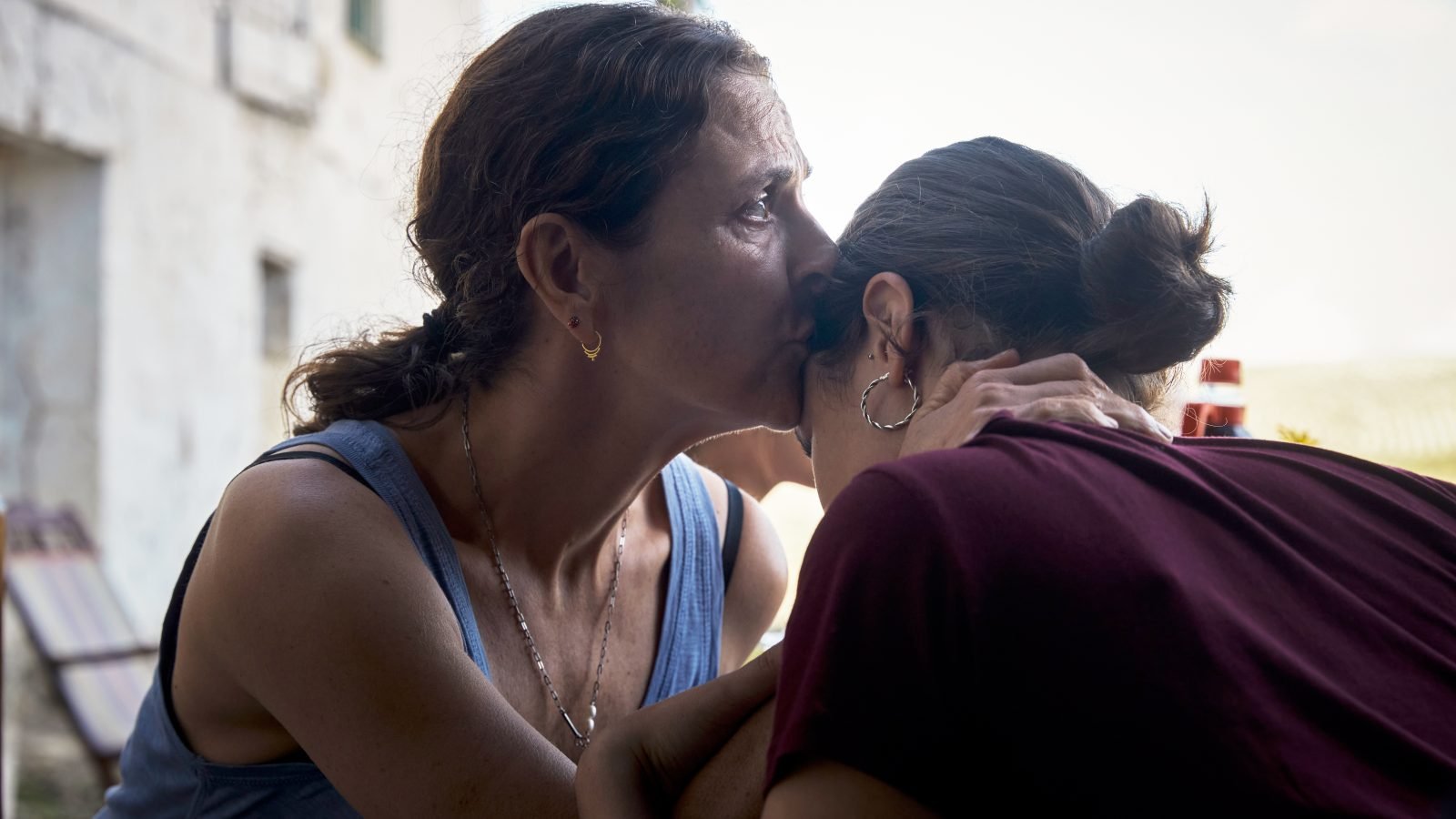The Exiles (Los Tortuga): Textured Kinship
by Karenna Blomberg
There is no relationship as complex to portray on screen than that of a mother and daughter. The delicate, often sharp-edged nature of mother and daughterhood juxtaposed with the tension of two women navigating a world not designed for them to thrive provides nearly endless opportunities for thoughtful storytelling. Following in the tradition of a few of my favorite films, like Greta Gerwig’s Lady Bird and Richard Benjamin’s Mermaids, Spanish director Belén Funes’ The Exiles (original title: Los Tortuga) peers at that fragile relationship through the lens of its two main characters as they attempt to strike a balance between their own perceptions of each other and reality.
Delia (Antonia Zegers) and her daughter Anabel (Elvira Lara) are, by all observations, more similar than they are not. After her husband (and Anabel’s father), Julián, passes away, Delia finds herself working as a taxi driver in Barcelona, out of money and entirely lost. Anabel’s future seems similarly uncertain after her father's passing, as her goal to work in the film industry stands directly opposed to her and Delia’s lack of funds.
Anabel and Delia’s approaches to their individual troubles are exactly opposite—Delia pushes through it all, wanting to live as if nothing has happened and nothing is wrong, sometimes to the point of acting with immaturity. Although subtle, the script (from Funes and screenwriter Marçal Cebrian) is carefully shaped to draw lines dividing Anabel and Delia's life in Barcelona versus time with their family in a rural part of Jaén province. “Exiled” from that family life to live in the “big city,” you can sense Delia’s determination to prove she will not come crawling back to safety when faced with the world’s uncertainty, and this inhibits her ability to cope with the tragedy she faces. Anabel, however, is more expressive about her grief and unhindered by some of her mother's same inhibitions. At times, she is confounded by her mother’s dedication to not honoring Julián's memory.
The film begins with Anabel and Delia reuniting with Julián's family in Jaén at Christmastime, and this move feels extremely tactful—the film starts expansive and warm then slowly squeezes in and empties Ana and Delia out as the festivities end and we slowly uncover the fullness of both their grief and poverty. The tenderness of this simple structuring move is tantamount to making The Exiles the film it is.
Both familiar in some ways and refreshing in others, The Exiles is a tender, forgiving look at the ways two women push each other away in attempts to draw each other closer; Delia and Ana are two sides of the same coin of unmitigated grief and decades of unspoken and unprocessed history. Zegers is especially touching as Delia—although she barely ever “loses her cool,” Zegers packs so much into the minutiae of her performance that you can feel as Delia attempts to release and shift her point of view to match her changing world, while still compartmentalizing everything around her.
Diego Cabezas’ cinematography at times appears to have been designed with an intentional two-dimensionality, and with that, Ana and Delia’s relationship becomes the central object in the film that takes tangible shape and form. Their uneasy, unspoken alliance with one another is what makes the film stand out, as their circumstances force them to understand each other, even if they don’t really understand each other. Both the subtle and unsubtle tensions of this dynamic breathe a shaky but visible life into the world that Funes creates, in a way that is fascinating to watch unfold.
Designed full of more questions than answers, The Exiles is an excellent rumination on not only mother/daughter dynamics, and not only the delicate character of grief, but on the vulnerability of taking care of one another, and allowing others to take care of you. The film’s Spanish title, Los Tortuga (“The Turtle”) connects to how Delia left her old life with nothing but her hope for her future with Julián. Without that future ensured, both she and Ana are unsure how to continue to be. With a rapidly shifting home, few common viewpoints, and no one thing to hold them together, Delia and Ana’s re-discovery of how they might relate to one another makes for a lovely, thought-provoking film.



